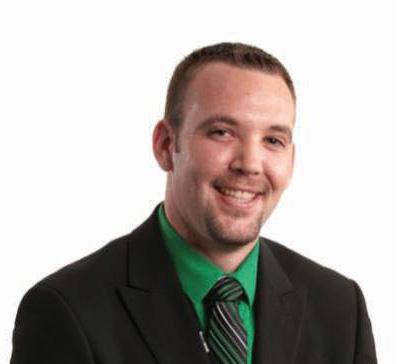
3 minute read
THE MADNESS OF MARCH
Keith Whyte, executive director of the National Council on Problem Gambling (NCPG), discusses March Madness, college athletes and responsible gambling in the US sports betting market.
As legalized sports betting spreads rapidly across the US, one area that highlights the responsible gambling challenges facing operators and vendors is the role of college athletics in the US. Betting on college sports, and the performance of unpaid, amateur athletes is a major part of the US market. The National Collegiate Athletic Association (NCAA) reports approximately 500,000 college student athletes compete in organized events. In 2019 $8.5bn was bet just on the 68 teams in the NCAA men’s basketball tournament.
NCAA regulations prohibit student athletes from betting money on any sporting event (college, professional or otherwise) in which the NCAA conducts collegiate championships. While NCAA rules prohibit betting on sports in which the NCAA conducts championships, an ongoing series of large studies since 2004 consistently find roughly one quarter of male student athletes report betting on sports, with almost 10% wagering at least monthly. Also, a majority of male student athletes consistently report troubling beliefs about gambling, including that athletes in college violate NCAA sports-wagering rules; sports wagering is a harmless pastime; and people can consistently make a lot of money gambling. The same series of studies found approximately 2% of male student athletes – over 5,000 players – disclosed they met criteria for gambling problems.
The majority of the discussion to date has focused on concerns about protecting the integrity of the game and the majority of prevention and education on an enforcement-heavy approach. And indeed, the NCAA’s own research finds nearly 1 in 20 Division I men’s basketball athletes report having been contacted for inside information. However, one of the biggest risks for match fixing is an athlete – or someone with influence over the player such as a teammate, roommate, coach, trainer or referee – who has a gambling problem. An uncontrollable urge to gamble despite mounting negative consequences is a hallmark of gambling addiction, yet there may be few outward signs until it’s too late.
When NCPG created Problem Gambling Awareness Month almost two decades ago, we chose the month of March to highlight concerns about legal and illegal sports betting during one of the highest-profile betting events in the country. For most, the moniker “March Madness” is evocative of the fun and frenzied fandom that accompanies this nationally televised single-elimination tournament. However, March Madness also captures the shame, stigma and stress for those who suffer from severe and even life-threatening gambling problems due to their betting on college basketball.
Few colleges have comprehensive problem gambling prevention, education or treatment resources. The average per capita government funding at the state level is less than 25 cents. This creates a challenging responsible gambling environment. Right now, gambling companies find themselves taking bets on college games from states and schools with little or no dedicated funding for problem gambling prevention, education or treatment initiatives. This is a threat to the integrity of the game as well as the behavioral health of the players. It also raises fundamental questions about gambling industry sponsorships, marketing, advertising and partnerships around college athletics versus professional teams.
This will also require a significant industry investment in responsible gambling to help fill in the gaps in the safety net particularly around college sports and young student athletes. NCPG is proud to be working with NCAA and other organizations such as EPIC Risk Management on initiatives to prevent players from developing gambling problems. The question is not whether there will be a gambling scandal in college athletics, the question is when. And for the gambling industry, the question is how proactive were they on responsible gambling in the jurisdictions where they were taking bets on college sports.










